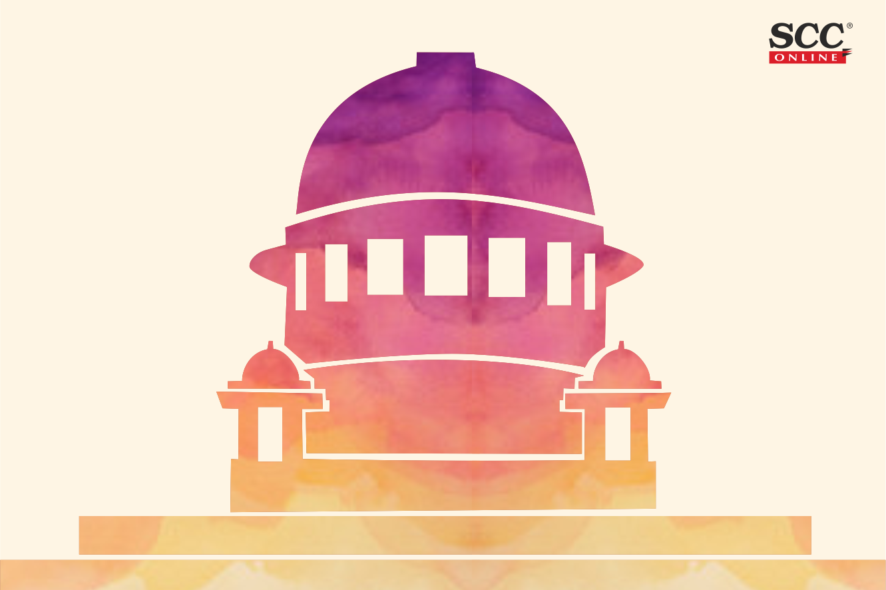Supreme Court: While deciding a case of a matrimonial dispute where the marriage never took off from the first day and was never consummated and the parties had been living separately from the date of marriage for almost 20 years, a Division Bench of Sanjay Kishan Kaul and Hrishikesh Roy, JJ. passed a decree of divorce in favour of the husband on account of irretrievable breakdown of marriage as well as on account of cruelty committed by the wife.
Background
It appeared that the appellant-husband and respondent-wife had a crash landing at the take-off stage itself. The appellant claimed that the respondent’s view was that she had been coerced into marrying the appellant without giving her consent and left the marriage hall at night. An endeavor by the relatives of the appellant to persuade her on the very next day to live with appellant was also not fruitful. The marriage was never consummated. In such view, the appellant issued a notice seeking divorce on the ground of cruelty under Section 13(1)(i-a) of the Hindu Marriage Act.
Respondent filed a petition for restitution of conjugal rights soon after the issuance of the notice. She submitted that it was the appellant who refused to cohabit with her, since her family was unable to fulfil the appellant’s demand for dowry.
After 5 years, the decree of divorce on the ground of irretrievable breakdown of marriage was granted by the trial court and after 6 days of the said decision, appellant got married the second time. The respondent preferred the appeal and the appellate Court set aside the decree of divorce while allowing the petition for restitution of conjugal rights. Thereafter, the High Court restored the decree of divorce granted by the trial court and each stage of scrutiny took 5 years, and 15 years passed in the litigation. This inter alia posed a question mark on status of second marriage of the appellant.
Later, the respondent filed a review petition on the ground that it was not within the jurisdiction of the High Court or trial court to grant a decree of divorce on the ground of irretrievable breakdown of marriage. The review petition was allowed and the same was assailed in the present appeal.
Analysis, Law and Decision
Supreme Court noted that the ground of irretrievable breakdown of marriage does not exist as a ground of divorce under the Hindu Marriage Act. The Bench referred to several judicial precedents including Hitesh Bhatnagar v. Deepa Bhatnagar, (2011) 5 SCC 234, which opined that courts can dissolve a marriage as irretrievably broken down only when it is impossible to save the marriage, all efforts have been made in that regard, the court is convinced beyond any doubt that there is actually no chance of the marriage surviving, and it is broken beyond repair. The Bench expressed:
“… Living together is not a compulsory exercise. But marriage is a tie between two parties. If this tie is not working under any circumstances, we see no purpose in postponing the inevitability of the situation …”
Incidental question in the present matter was, whether the respondent’s conduct after the initial trigger for divorce amounted to mental cruelty?
Respondent after succeeding before the appellate court lodged a criminal complaint against the appellant under Section 494 of Penal Code, 1860 even though an appeal was pending before the High Court. There were episodes of further harassment by the respondent even at the workplace of the appellant including insulting the appellant in front of students and professors. The respondent also threatened the appellant of physical harm in front of his colleagues.
Supreme Court held that the continuing acts of the respondent would amount to cruelty even if the same had not arisen as a cause prior to the institution of the petition, as was found by the trial court. It was observed:
“The marriage having not taken off from its inception and 5 years having been spent in the Trial Court, it is difficult to accept that the marriage soon after the decree of divorce, within 6 days, albeit 6 years after the initial inception of marriage, amounts to conduct which can be held against the appellant.”
The Court was of the opinion that both the grounds of irretrievable breakdown of marriage and cruelty would favour the grant of decree of divorce in favour of the appellant. Hence, a decree of divorce dissolving the marriage between the parties be passed not only in exercise of powers under Article 142 of the Constitution of India on account of irretrievable breakdown of marriage, but also on account of cruelty under Section 13(1)(i-a) of the Act in light of the subsequent conduct of the respondent during the pendency of judicial proceedings at various stages.
In view of the above discussion, decree of divorce was passed and the marriage stood dissolved. [Sivasankaran v. Sathimeenal, 2021 SCC OnLine SC 702, decided on 13-09-2021]







